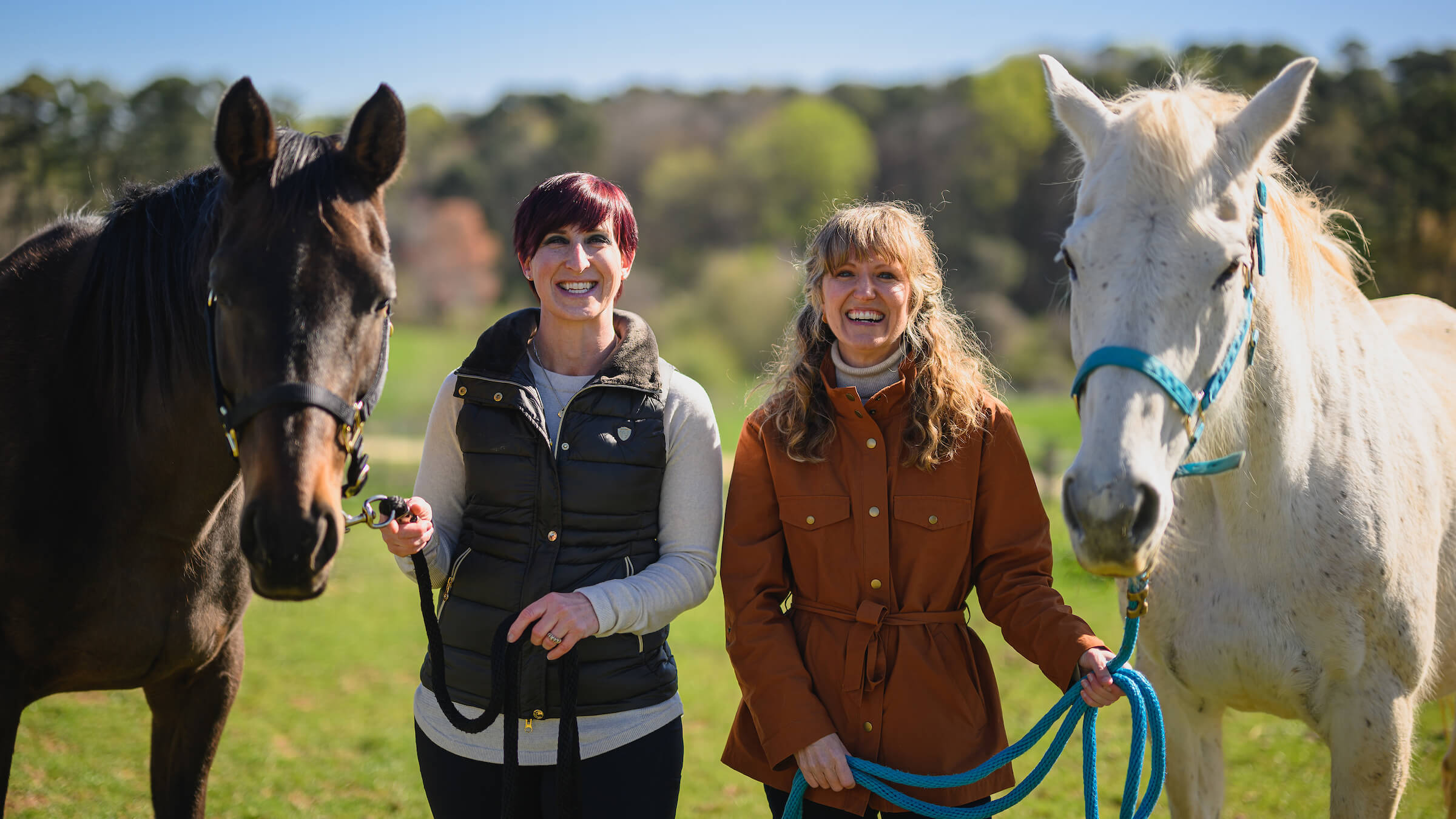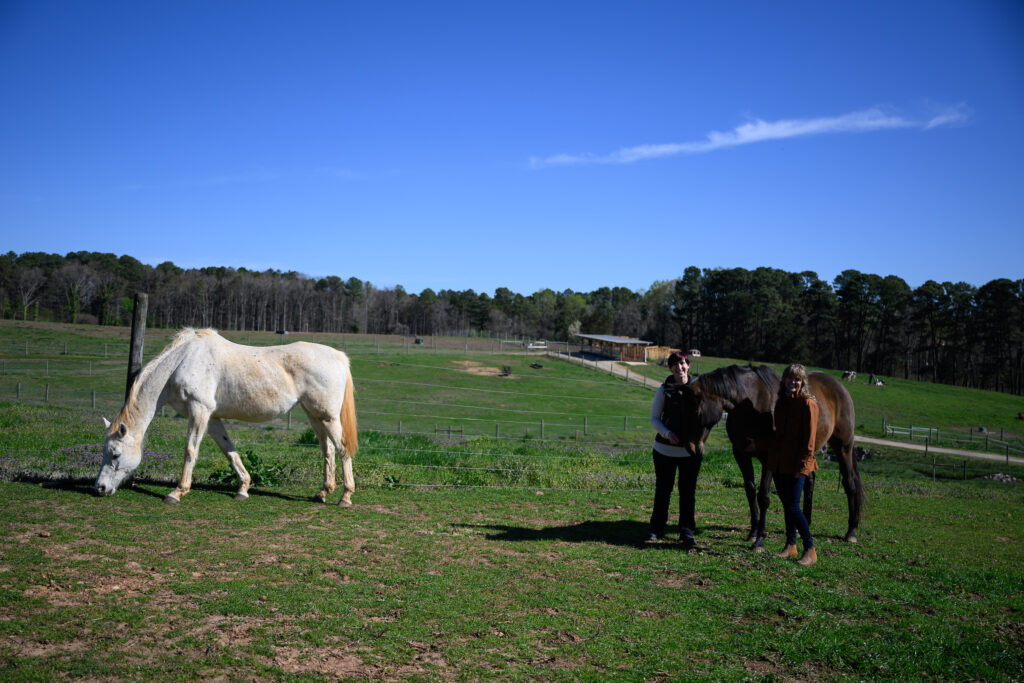NC Horse Council Helps NC State Care for On-Campus Herds
"We want people to know that the NC Horse Council is the voice of the equine industry and that we support all aspects including health and research,” the council's executive director says.

The NC Horse Council has awarded a grant to the NC State College of Veterinary Medicine to help the college care for its on-campus horses that participate in the advancement of equine health and translational medicine.
“We are thrilled that the NC Horse Council has chosen to help support the animals that are critical to equine research,” says Dr. Lauren Schnabel, associate professor of equine orthopedic surgery. “The council also is recognizing the important role NC State plays in the equine industry in North Carolina and the role these horses play in moving innovation forward and in helping us treat horses in the hospital.”
The NC State College of Veterinary Medicine supports the state’s equine industry in a variety of ways, including by conducting research into equine diseases and offering specialized care at its equine hospital in Raleigh. The equine industry directly contributes about $2 billion to the state’s economy as well as more than 25,000 jobs.
“The council has given many grants to the veterinary school, but this is the first time we’ve awarded a grant for the care and maintenance of animals,” says Sue Gray, executive director of the NC Horse Council. “Other funders will fund the research but not fund the animal who is allowing that research. It is a new approach, a new day. The need was pointed out very well by Dr. Katie Sheats and Dr. Schnabel.”
The college keeps three herds of horses that contribute to research projects. Schnabel has horses whose blood samples and stem cells have led to breakthroughs in, among other areas, the treatment of equine arthritis, tendon injury and other orthopedic diseases. Sheats, assistant professor of equine primary care, has horses with severe equine asthma. Nearly 15 percent of horses in the Northern Hemisphere suffer from severe asthma. The theriogenology or reproduction-focused herd has female ponies that have greatly helped in the development of new treatments for placentitis, a leading cause of equine reproductive loss as well as other conditions.
“My horses are genetically unique in immune types, and we get blood and stem cell samples to use in studies,” Schnabel says of her herd. “We’ve also designed a novel platelet product from blood samples that we used to treat infected joints. That product has saved horses with infected joints in the hospital and may be translatable to the treatment of human joint infections.”
Sheats’ work on equine asthma has the potential to help humans as well.
“My research herd is made up of owner-donated horses that have this condition and can no longer be managed by their owners,” Sheats says. “They get a lifetime position in a herd that lives in a pasture. We are able to get airway samples and blood samples that lead to new therapeutic investigations. Asthma is very common in North Carolina.”

The NC State College of Veterinary Medicine equine team has 16 faculty members and three clinical veterinarians, all of whom have active research programs. The horses also provide educational opportunities for NC State students at all levels of training.
“We really value the equine team at the vet school because there is such a need for information to our horse owners,” Gray says. “We have a large equine population in the state, but nationally the college’s research has a lot of value as well. When we award grants, we look at what types of research and where are the biggest needs, and this addresses both of that.”
In their application for the NC Horse Council grant, Schnabel and Sheats described how the funding would make a lasting difference: “Dedicated funding for the equine research herds will allow our equine group to continue our track record of success and excellence in our research and teaching endeavors and in making North Carolina a leader in equine health discovery and clinical care.”
The council is funded through membership dues, the sale of liability insurance for equine owners, philanthropy and a legislatively provided 10-cent fee per 50-pound bag of horse feed sold in the state.
“We want people to know that the NC Horse Council is the voice of the equine industry and that we support all aspects including health and research,” Gray says. “Through our revenue sources, we like to give a portion of those grant dollars back into the equine community. Last year, we gave close to $200,000 in grants and awards throughout the state.”


